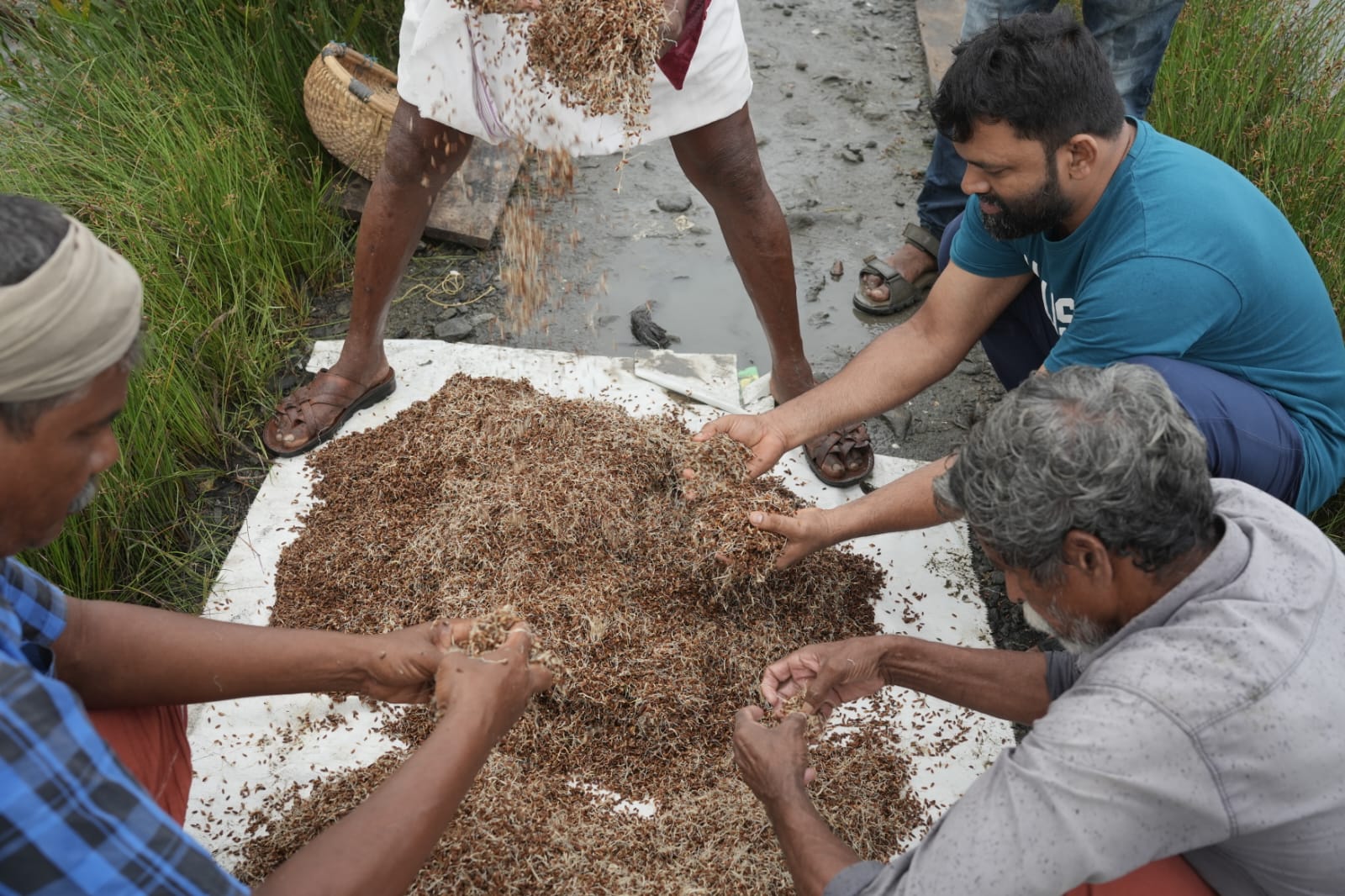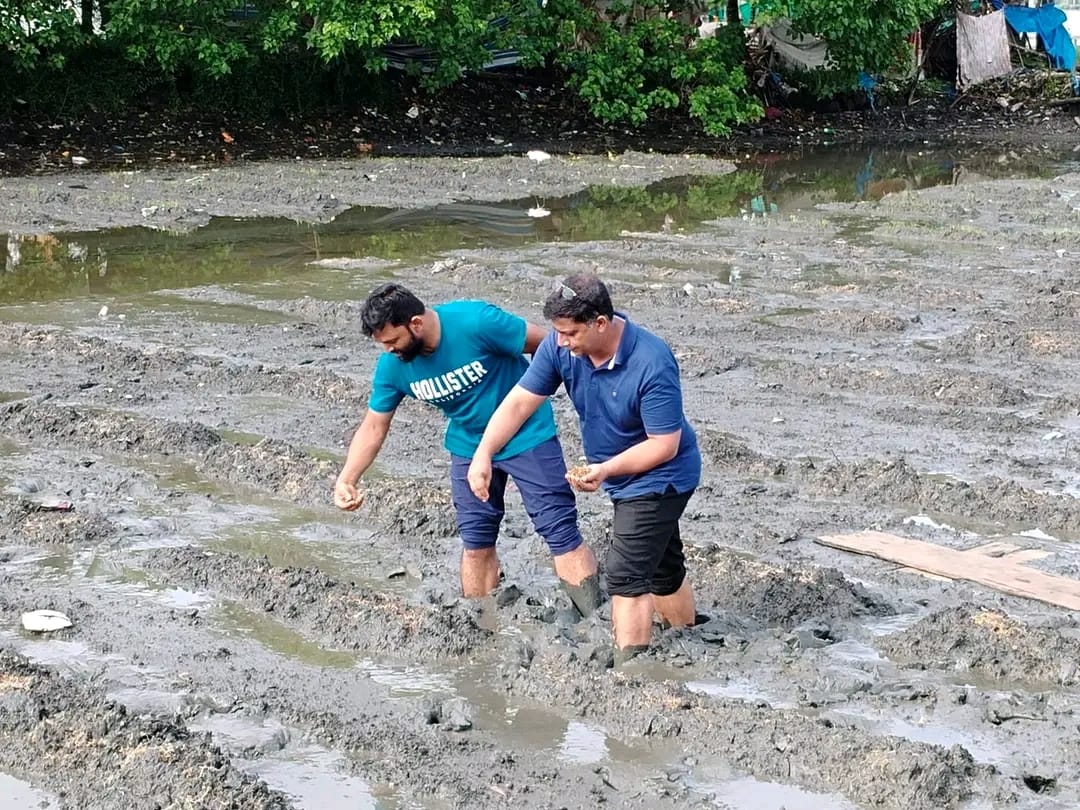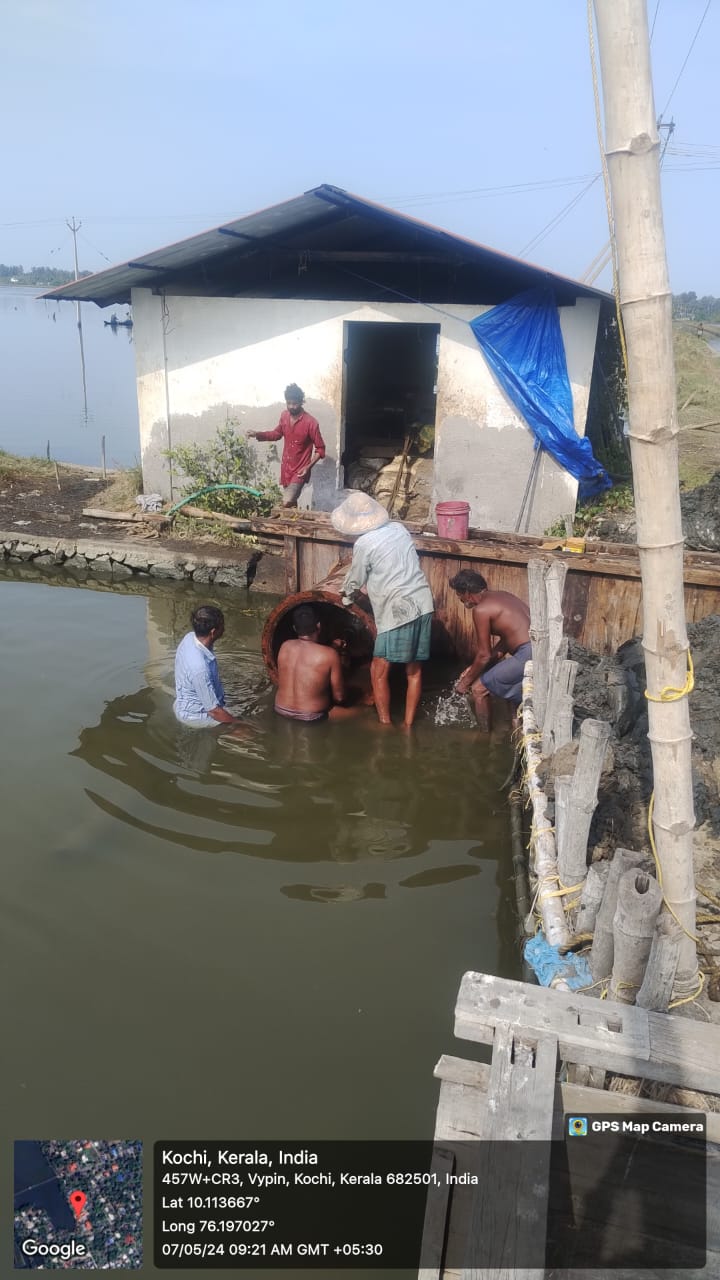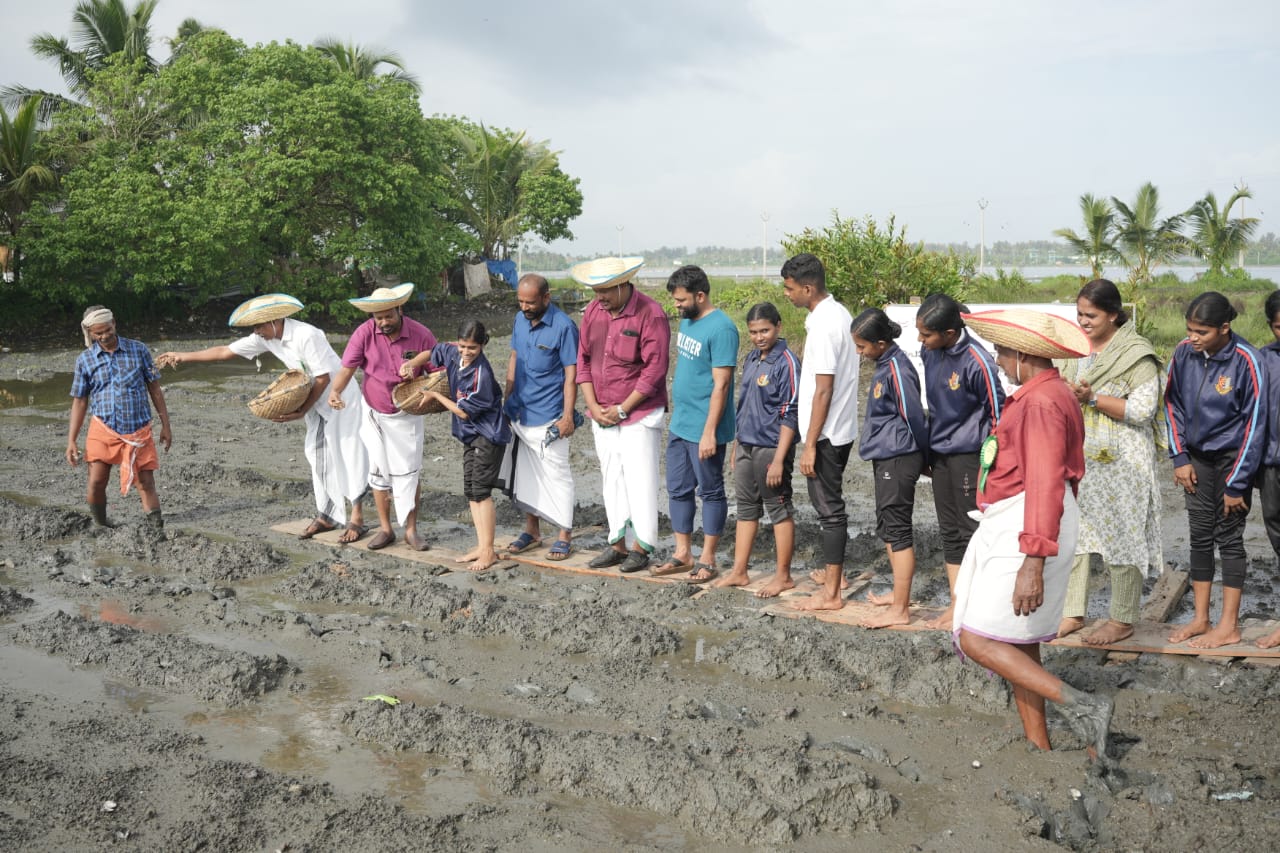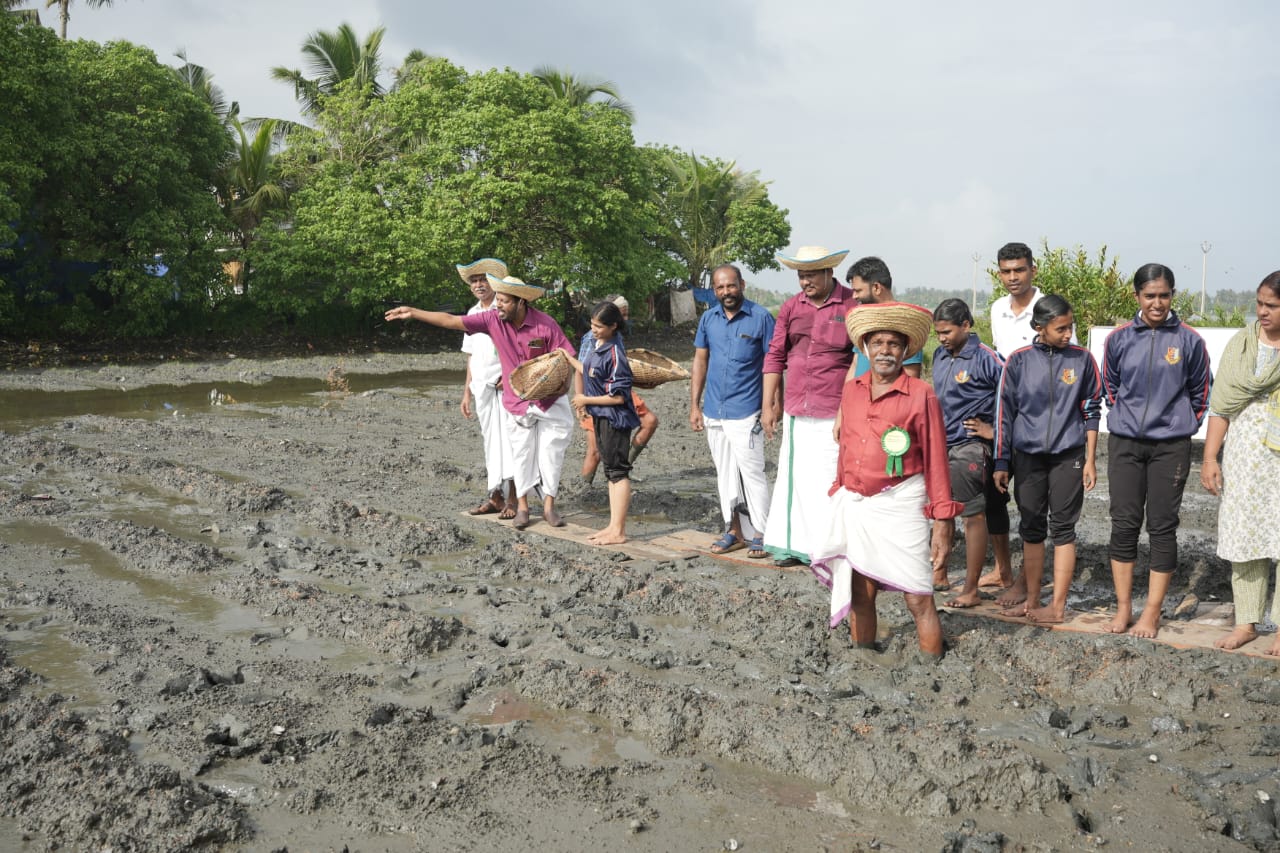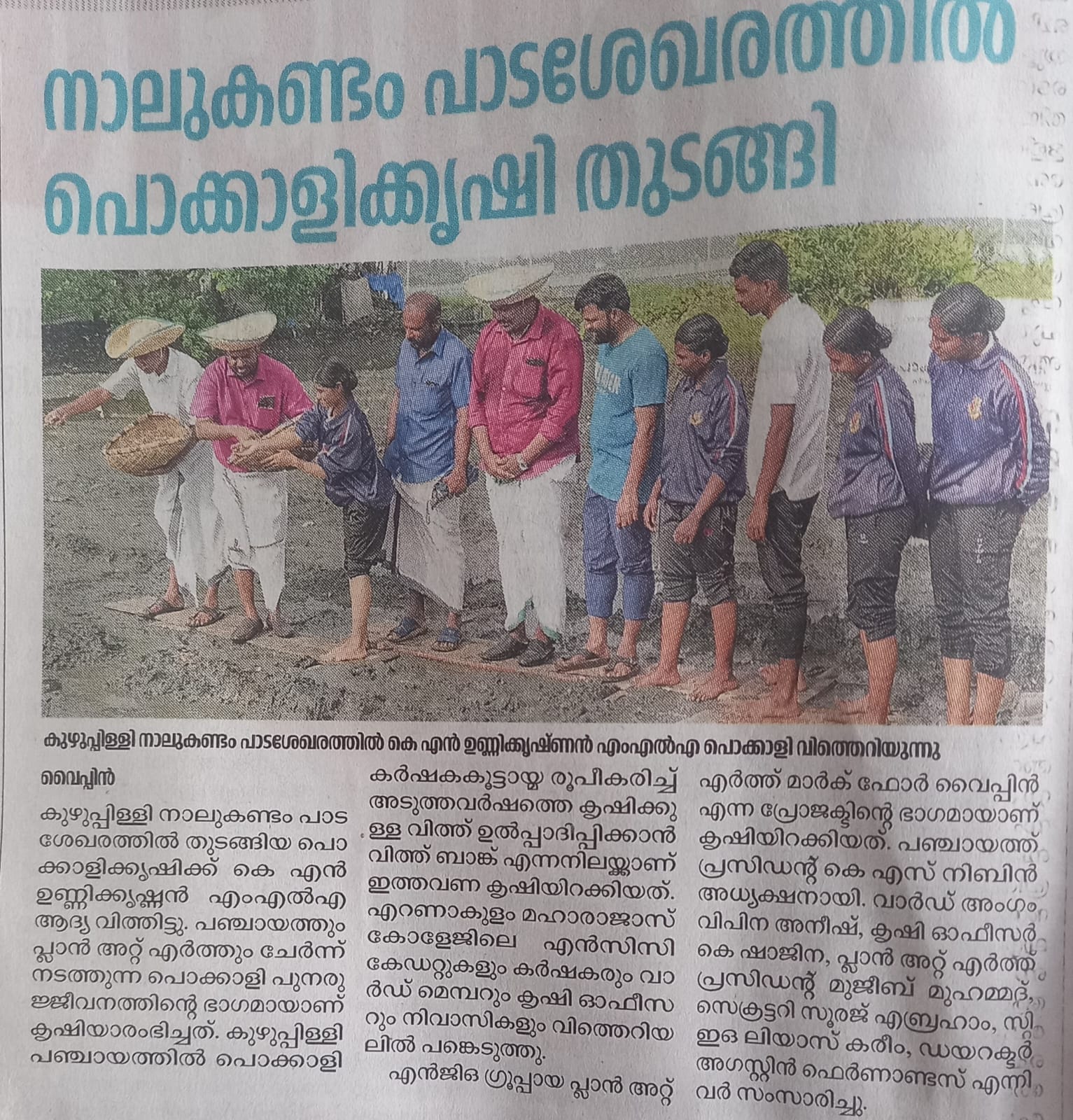POKKALI FARMING
POKKALI FARMING
Pokkali farming is an agriculture-aquaculture practice prevalent mainly in the coastal areas of Kerala, India. Shrimp farming and salt-tolerant rice are cultivated together in this method, which is known for its sustainability and ecological benefits. Using the natural monsoon cycle, the system alternates between rice cultivation and prawn farming during the wet season. Pokkali farming has been practiced for over a millennium, as documented by historical accounts and indigenous customs. This agricultural technique, named for the native Pokkali rice, has been passed down through the years and reflects the ingrained environmental and cultural knowledge of the surrounding communities.
An innovative project called the MARC aims to advance sustainable aquaculture and agriculture methods in Kerala, India’s Vypeen region. The restoration and development of Pokkali farming, a customary method of raising rice and prawns, is a crucial part of this endeavor. The project’s main goal is to use the Chethivirippu seed variety, which is renowned for being resilient and appropriate for the particular circumstances found in Pokkali fields. Due to urbanization, climate change, and changes in economic activity, traditional agricultural practices have declined in the Vypeen region, which has a long history of Pokkali farming. Combining cutting-edge scientific research with conventional farming methods, the MARC (Mangrove Restoration and Conservation) Project seeks to address these issues and guarantee environmental sustainability, economic viability, and cultural preservation.
MARC Project aims to create a resilient and prosperous agricultural community in the Vypeen region. Chethivirippu, one of the native varieties is used for Pokkali farming and formed a farmer’s collective for the same. Farmers will get money for Pokkali farming through the project and they are requested to payback after harvesting. Following the fish catch, the paddy fields were first left dry. Following that, farmers prepared the land for growing Pokkali rice. After procurement, seeds are steeped in water to initiate sprouting. Then they are sowed in the prepared paddy field. After 28 days of sowing, farmers remove the clusters of saplings from one place to another.They will also perform Kalaparikkal (weed removal) in between. Farmers will then harvest the field, followed with Methikkal, Onakkal and Kaattath pidikkal.

